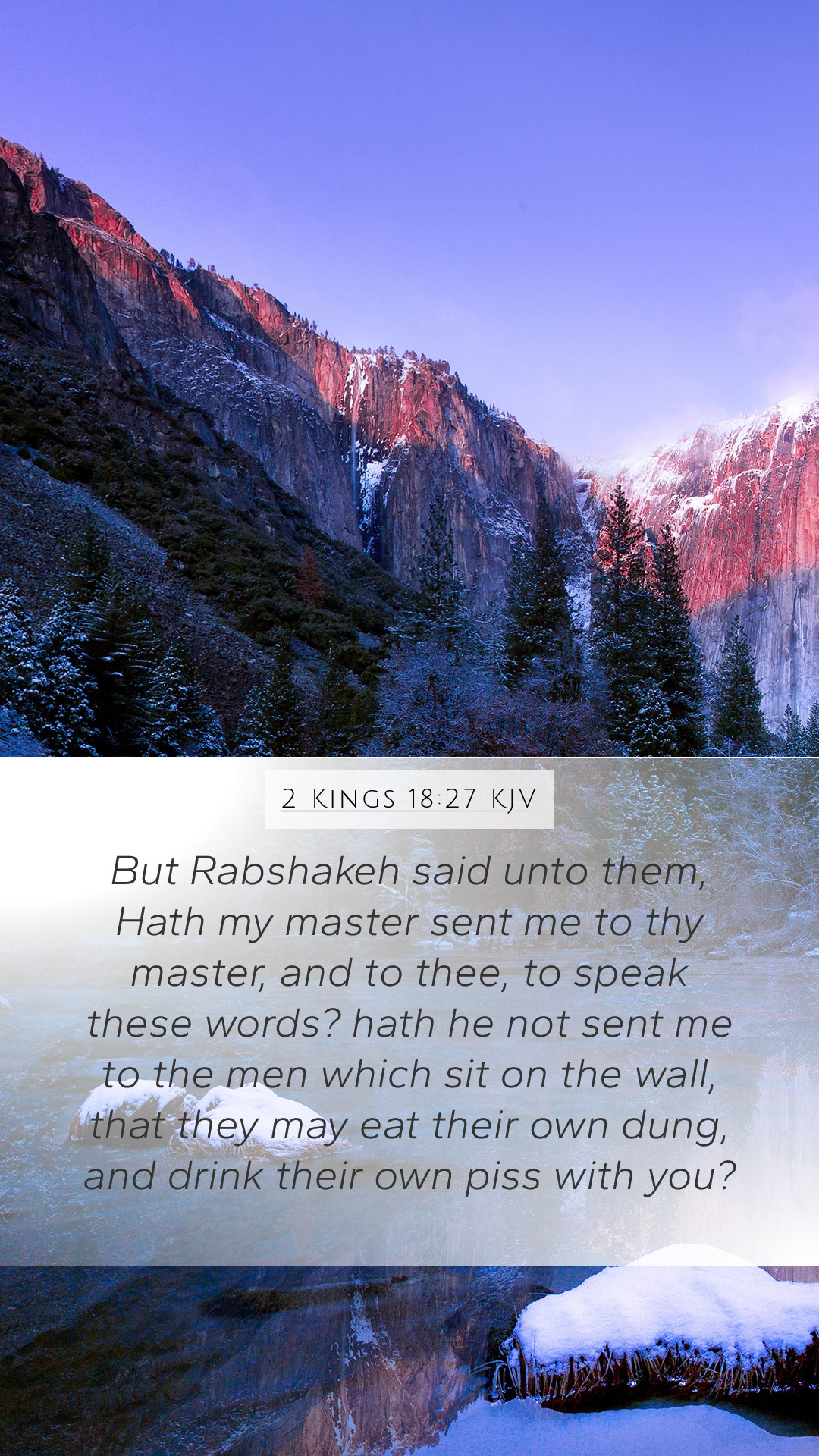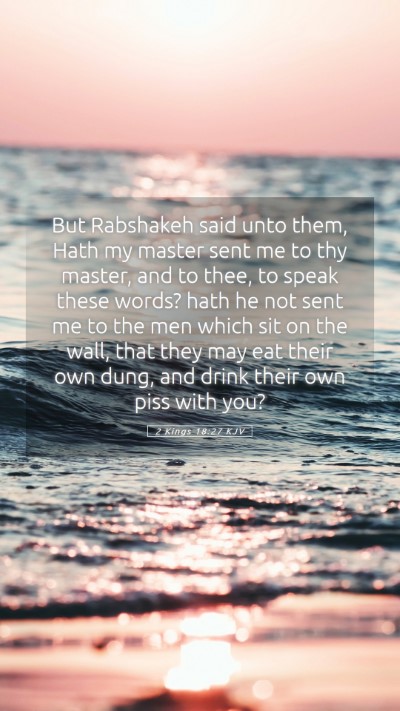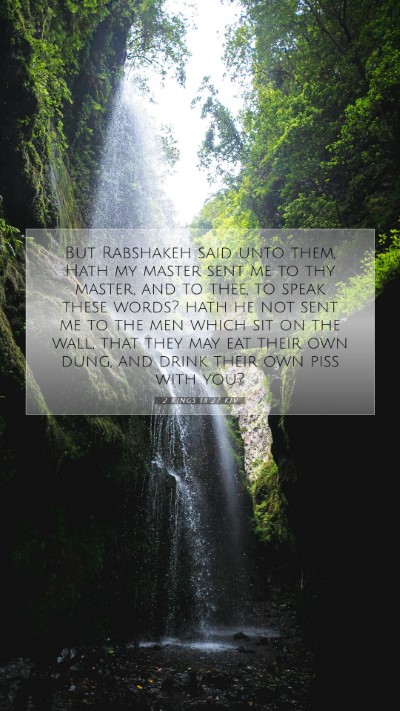Bible Verse Explanation: 2 Kings 18:27
Verse: “But Rabshakeh said to them, ‘Has my master sent me to speak these words to your master and to you, but to the men who sit on the wall, who will eat their own dung and drink their own urine with you?’” - (2 Kings 18:27 NKJV)
Understanding Scripture: Context and Significance
2 Kings 18:27 reveals a critical moment during the siege of Jerusalem by the Assyrian army, represented by Rabshakeh. This verse epitomizes the psychological warfare employed by the Assyrians and showcases themes of despair, survival, and divine faithfulness.
Historical Context
The events leading up to this verse occur during King Hezekiah’s reign over Judah, a time marked by significant military threats and religious reform. The Assyrians, under King Sennacherib, were swallowing neighboring nations, and Jerusalem stood alone as a bastion of faithfulness to Yahweh.
Key Themes in 2 Kings 18:27
- Psychological Warfare: Rabshakeh’s words are aimed at instilling fear and hopelessness among the besieged. The imagery he uses is grotesque, intended to depict the dire consequences of a prolonged siege.
- Desperation and Survival: The vulgarity of eating dung and drinking urine illustrates the extreme desperation faced by those cornered in the city. It serves as a bleak picture of survival in dire circumstances.
- Divine Assurance: While the taunt seems overwhelming, it also sets the stage for God’s eventual deliverance of Jerusalem, emphasizing the tension between human despair and divine hope.
Bible Verse Meaning in Commentaries
Public domain commentaries provide rich insights into this verse, highlighting various interpretations and applications:
Matthew Henry's Commentary
Henry focuses on the absurdity of Rabshakeh's assertion, illustrating the folly of relying on human strength in times of oppression. He notes how such despair brings out a need for divine intervention and stresses the importance of steadfast faith even when circumstances appear bleak.
Albert Barnes' Notes
Barnes draws attention to the offensive nature of Rabshakeh's remarks, emphasizing that the taunts were designed to undermine confidence in God's protection. His commentary contextualizes the historical setting of Hezekiah’s reign and encourages readers to recognize the providence of God amidst threats.
Adam Clarke's Commentary
Clarke elaborates on the implications of Rabshakeh’s speech, arguing that such aggressive rhetoric from an enemy reveals an understanding of the psychological tactics of warfare. He encourages readers to see beyond Rabshakeh's words and to trust in God’s faithfulness to deliver his people in times of need.
Application and Use in Bible Study
For those seeking bible verse interpretations or bible study insights, 2 Kings 18:27 offers rich lessons on faith in adversity. Consider using the verse in bible study groups to discuss:
- How we respond to threats in our lives.
- The role of faith in moments of despair.
- Understanding historical context when interpreting scripture.
Related Bible Cross References
- Isaiah 36:12: This passage echoes the same event and highlights God’s deliverance during the siege.
- 2 Kings 19:14-19: Hezekiah’s prayer of desperation and God’s reassurance of deliverance helps to reinforce themes of trust.
- Psalm 31:24: An encouragement to be strong and take heart for those who hope in the Lord, paralleling the situation in Jerusalem.
Final Thoughts
The interpretation of 2 Kings 18:27 reveals the complex dynamics of faith in the midst of overwhelming opposition. For anyone seeking a profound bible verse understanding, this verse serves as a stepping stone into deeper biblical exegesis, prompting reflection on how faith sustains through trials.


